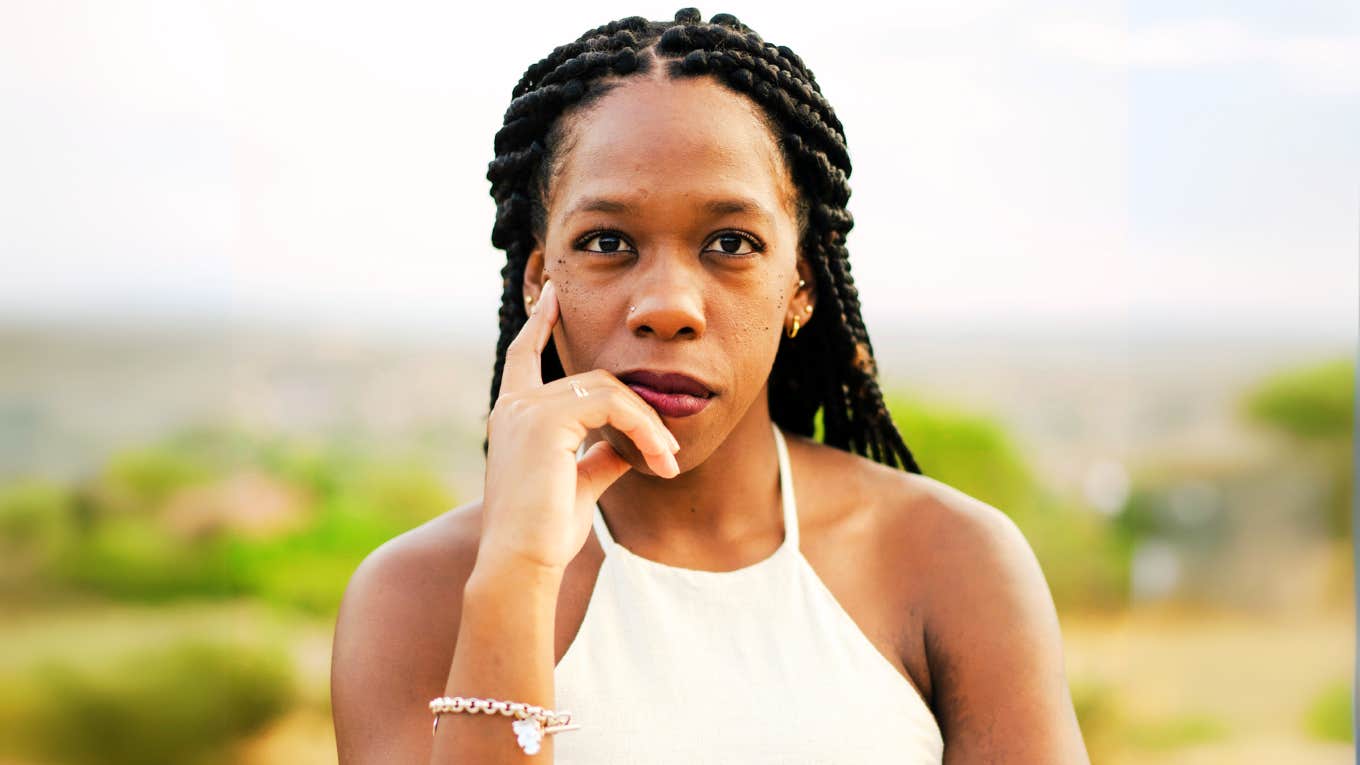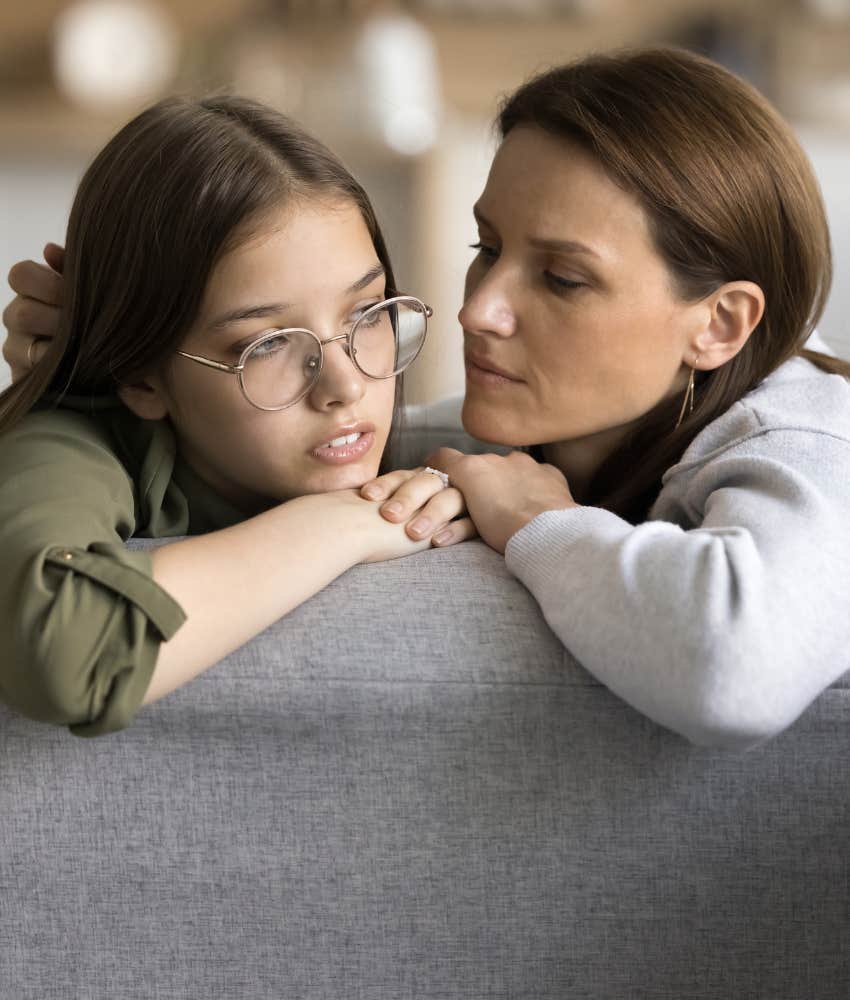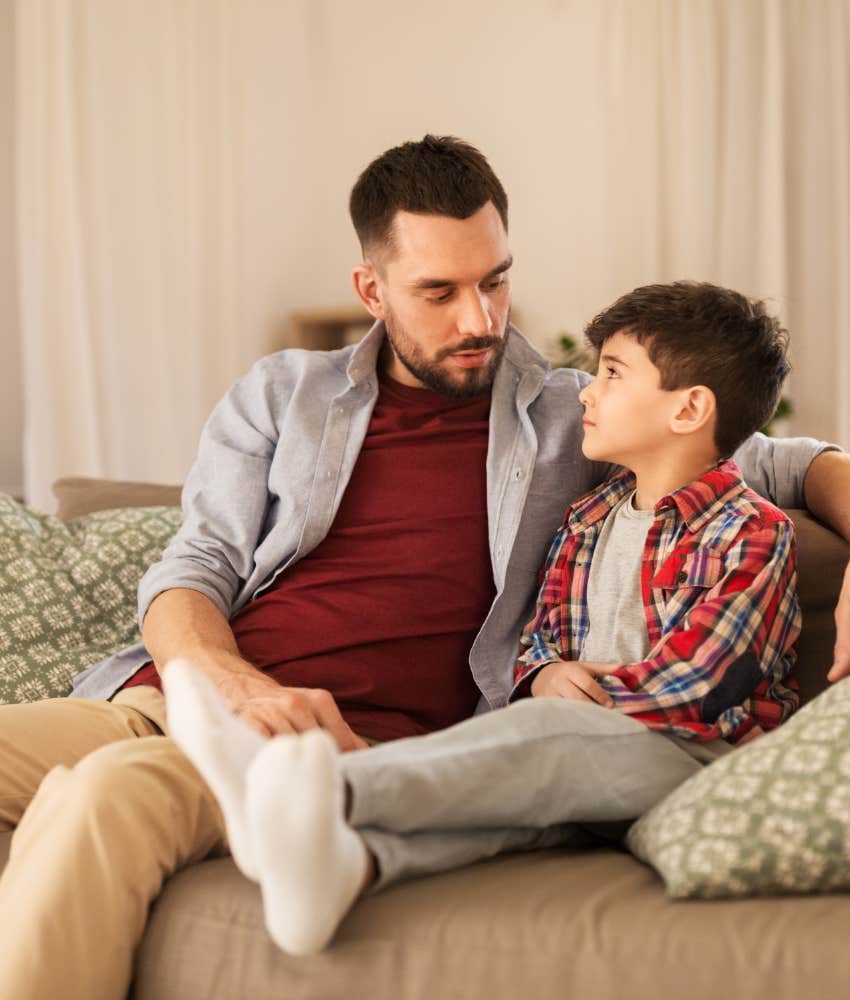The 2 Times When A Parent's Divorce Is Actually Better For The Kids, According To Psychology
Yes, divorce can benefit some children, but only when it's handled right.
 pocstock | Canva
pocstock | Canva If you feel like you're stuck in an unhappy marriage and divorce is your only option, then it's important to know how divorce can affect you. If there are kids involved, it can significantly complicate the breakup and change what you need to focus on.
Judith Wallerstein, Ph.D. created a landmark twenty-five-year study on the effects of divorce on families, particularly children. Beginning in the 1970s, she followed 131 children whose parents divorced. She checked in with them every five years and reported these longitudinal observations in a book, The Unexpected Legacy of Divorce.
At the time of initiating the study (when Wallerstein anticipated only a one-year study), she assumed the findings would validate that divorce was a short-term crisis that families and children weathered well. At the one-year mark, however, the data shocked Wallerstein. Every member of the divorcing families was doing poorly on every measure of well-being. Consequently, they extended the study’s end date several times.
Psychological studies say divorce is usually bad for kids
While most of the parents experienced noticeable emotional healing in the early years, the children did not. At five years, over a third of the children were even worse emotionally than they'd been at the beginning of the divorce.
The data results on the children in divorce disturbed Wallerstein, particularly given how persistent the effects remained over the years.
If you’re in an unhappy marriage with kids and considering divorce, the following may be difficult to read. Do your best to be clear-eyed and level-headed.
Data shows parental divorce impacts kids in the following ways:
- Children were more devastated by divorce than adults. Children were especially affected because divorce occurred during their formative years. What they saw and experienced became a part of their inner world, their view of themselves, and their view of society — the foundation of their lives.
- For all children, the loss of the intact family structure stripped away the felt sense of safety and protection provided by the family structure.
- The loss of the family structure also collapsed the scaffolding upon which the child’s psychological, physical, and emotional growth was mounted. This interrupted the child’s growth process.
- Virtually all children felt rejected in the divorce because they interpreted the parent leaving the spouse as also leaving themselves.
- Almost all children in the study were angry at their parents.
- The children in the study felt intense loneliness. Shockingly, only ten percent of the children indicated that an adult spoke to them sympathetically as the divorce unfolded.
- Children in the study experienced a sense of disloyalty. If they believed they had to take one parent’s side (usually to protect that parent psychologically), they felt disloyal to the other parent. Even if they did not take sides, they still felt isolated from both parents.
- A significant percentage of children felt guilt and even fault for the divorce and believed it was their duty to mend the marriage. Virtually all children held reunification fantasies for years.
- Unlike parents, children did not perceive divorce as a “second chance.” Rather, it was the loss of their childhood as they had known it.
- Children in the study experienced low self-esteem in adolescence at greater rates. This was especially true if fathers became emotionally distanced from the child.
- Adolescence was a period of grave risk for children in the study. Those who entered adolescence in the immediate wake of their parents' divorce had a particularly hard time, given the loss of family structure when they needed it most. An alarming number of teenagers felt abandoned, physically and emotionally.
There were also significant long-term effects of divorce on children.
Two situations where divorce is actually better for kids
 fizkes via Shutterstock
fizkes via Shutterstock
Wallerstein’s study indicated two situations where children did better after divorce. Yes, divorce in these situations can benefit the children.
1. When there is chronic conflict, violence, or abuse
First, when there is chronic conflict, violence, or abuse in the marriage. If you are in a dangerous situation and experiencing domestic violence, staying together is doing great harm to your children, as shown by the American Psychological Association.
Find a local domestic violence support service to guide you on how to get out of the relationship or, at a minimum, on how to protect your children.
Wallerstein isn't the only researcher to discover the benefits for kids after divorce. Three decades of research have also demonstrated that divorce is better for children in cases of domestic violence.
2. When there is persistent, untreated addiction
Children of alcoholics and children of other drug-abusing parents, according to Pediatrics Journal, "are at high risk because there is a greater likelihood that they will develop alcoholism compared with a randomly selected child from the same community, and are especially vulnerable to the risk for maladaptive behavior because they have combinations of many risk factors present in their lives. The single most potent risk factor is their parents' substance-abusing behavior. This single risk factor can place children of substance abusers at biologic, psychological, and environmental risk."
Divorce is the choice to reduce the risk factor to children if the addicted parent refuses to acknowledge and seek a solution to their problem. A study from the Journal of Drug Education showed "children of addicts suffer from emotional, cognitive, social, and behavioral problems, are undoubtedly 'a population at risk,' in need of preventive and therapeutic intervention."
How to help kids thrive after their parents' divorce
If you decide to leave your unhappy marriage with kids, prepare them.
1. Be realistic
Give them an honest idea of how divorce will disrupt their school experience, play time, shopping, and possibly friendships.
2. Make clear they are not the cause
Make it clear to them that the divorce is not because of anything they did or didn’t do. Kids cannot create a happy marriage for their parents, and they cannot create a bad one. They certainly do not cause anyone to harm another adult.
3. Share how hard you tried to make it work
If the decision is the last resort after unsuccessful attempts to repair the marriage, let them know.
4. Be honest about your sadness, but do not treat them like therapists (or even peers)
Acknowledge your sorrow over how it affects them, specifically.
You can share how sad you are over the divorce, but never make your feelings a burden to your children. You can tell them you are sad and even cry in front of them sometimes, but reach out to a friend, family member, or therapist to process your feelings or to break down emotionally.
Children are not prepared to support adults during stressful or emotional times, nor should they be. Often, a child will try to step up to act as a friend or counselor to a parent, but it is the responsibility of the parent to say, "I am so grateful for your love and that you want to help, but I will be OK! I have lots of adults who want to support me. Would you like to do something together now, like read a book or play a game?"
5. Don't ever abandon your children
 Ground Picture via Shutterstock
Ground Picture via Shutterstock
Remain an active presence in your children’s lives, even if they attempt to push you away in their anger.
Keep repeating the messages that the divorce was not their fault and that you're not divorcing them.
Because of how the brain develops in children, especially under twelve, they'll likely believe it's their fault. Continue to talk about the divorce over the years and hear their feelings.
Do your best to keep things as consistent and predictable as possible for the children. The children residing in the same house they've lived in accomplish much of this goal, if it's financially possible. Ideally, keep them in the same schools and programs, as well.
6. Support their relationship with the other parent (as long as the parent is not dangerous)
Support their relationship with your ex. Be open to them communicating with the other parent, even on “your” time with them. Work with your ex to have consistency in parenting — especially for adolescents.
Studies show that children of divorce fare worse when parents continue to fight, belittle, or insult one another even after splitting. Life for children after divorce should be calm, predictable, and secure.
7. Seek therapy to be the best version of yourself
It’s normal and healthy to feel the need for support during this tumultuous time. Consider therapy for yourself and your children, too, if they're displaying distress. Also, consider creating a self-care regimen to help you stay mentally and physically healthy.
You may decide not to divorce; after all, many people choose to stay in their marriage. There’s even some evidence that doing so yields more happiness than divorce in the long term, as suggested by a 1991 study of stable, unhappy marriages.
Choosing to stay can be to keep the family intact, for financial reasons, or many others. The choice to stay is as personal and as individually valid as the choice to divorce.
If you decide to stay in your unhappy marriage, you have to figure out a new way of being in a relationship that's at a minimum tolerable for yourself and not damaging for the children.
While this will take work, it’s absolutely necessary for everyone's mental health to find a low-conflict “new normal.” No one can thrive in an atmosphere of ongoing conflict and high emotion.
If you’ve made the decision to stay in the unhappy marriage with your kids and your partner is unwilling to do anything, there's still hope.
Forget the idea of "reciprocation" and focus instead on being the best that you can be. By persistently focusing on yourself, not only do you grow personally, but your marriage has a high probability of shifting, too.
As you change, not only do you personally benefit, but you also cause the system to shift.
Once the system shifts, your partner must respond to that shift to rebalance the marriage system. You cannot control how your partner will respond, but there will be a response. The good news is that those responses are generally positive ones.
Whether you decide to stay in your unhappy marriage or divorce, it's not easy. You'll need support.
Surround yourself with supportive friends, and consider new meetups or regular attendance of a group you're already in, like a church, temple, or mosque. Groups can protect you from isolating yourself and be a source of encouragement, new learning, and sometimes even new friends.
This also may be a time to invest in individual counseling to help support you along the way as you shift to a new normal.
Rhonda Kelloway, LCSW, SEP, is a trained divorce and family mediator, and the co-owner and a principal therapist at Life Care Wellness, a group psychotherapy practice in Illinois.

